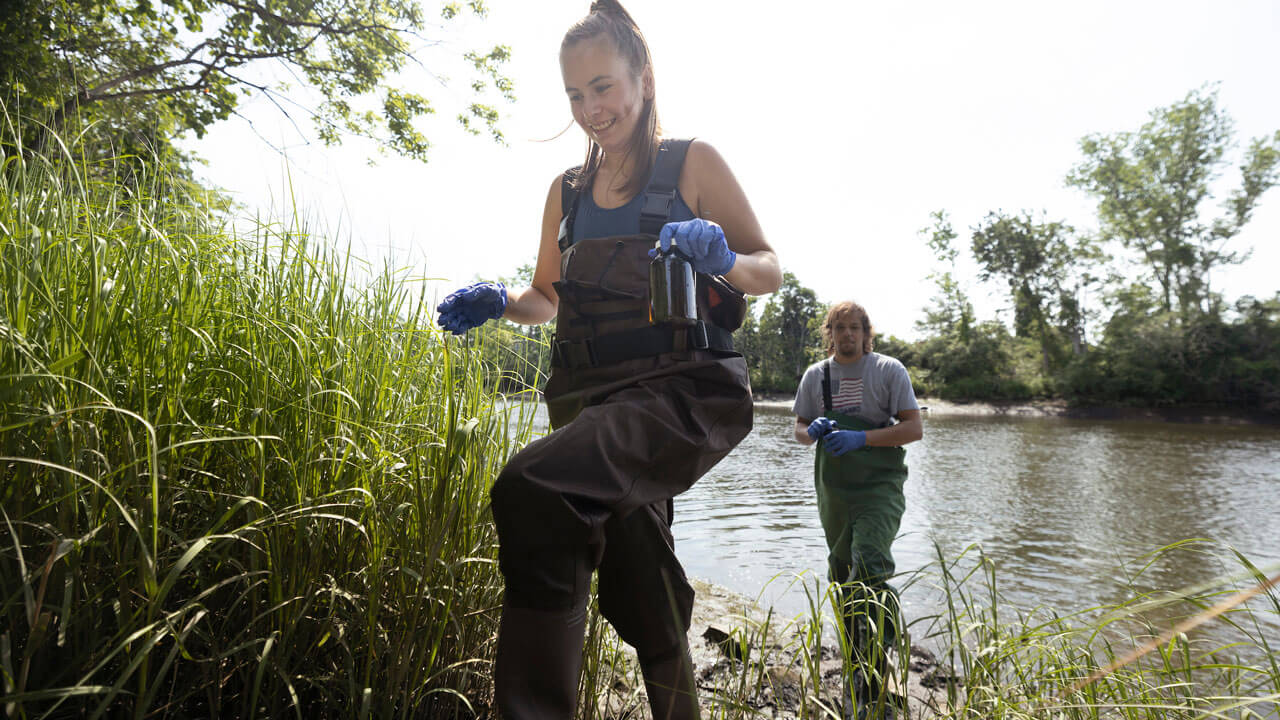
Professors receive $30,000 in grants for their Quinnipiac River initiative
June 08, 2023

June 08, 2023

According to the Community Foundation for Greater New Haven, the Quinnipiac River Fund was created to improve the environmental quality of the Quinnipiac River and the New Haven Harbor.
Kinsey, an assistant professor of chemistry, was awarded a $14,000 grant. Her project aims to monitor pharmaceuticals and personal care products (PPCPs) and water quality in the Quinnipiac River.
McGinnis, a biology professor from Hamden, was awarded a $16,000 grant to continue investigating pollution in the Quinnipiac River.
Kinsey said the funds will be used this summer and in the fall.
“The main goal of the project is to identify potential contaminants entering the Quinnipiac River and improve monitoring of low concentration compounds that may impact aquatic and human health,” she said.
McGinnis’ research project entails collecting water samples from locations in Hamden, Meriden, North Haven and Wallingford. McGinnis and a team of students will analyze the samples for the presence of pesticides, phthalates or plasticizers and other water quality parameters.
“The grant received from the Quinnipiac River Fund will be used to sample areas of the Quinnipiac River from the headwaters in Meriden at Hanover Pond through the intertidal area in North Haven,” McGinnis said. “In addition to sampling in the summer, this year's grant supports sampling throughout the year in an effort to assess seasonal change on coliform levels, as well as the presence or absence of phthalates and other known plasticizers.”
McGinnis added that the research project will support one student in the summer, while additional students will participate through enrollment in independent studies.
The water quality monitoring needs were determined through consideration of past study results and the classification of the Quinnipiac River as an impaired water body, she said.
Quinnipiac Today is your source for what's happening throughout #BobcatNation. Sign up for our weekly email newsletter to be among the first to know about news, events and members of our Bobcat family who are making a positive difference in our world.
Sign Up Now